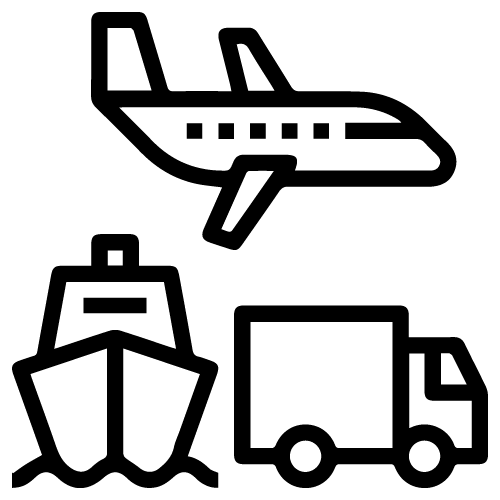Violations of international law
The EU is strongly committed to ensuring war crimes committed in Ukraine do not go unpunished.
Crimes against humanity, war crimes, genocide and the crime of aggression are considered the most serious violations of international law, also called international crimes.
Ukraine is investigating more than 69,000 incidents of alleged international crimes, and the actual number of such atrocities is suspected to be even higher.
- 14 EU Member States
have already opened national investigations for international crimes committed in Ukraine
- 6 EU Member States
Poland, Latvia, Estonia, Slovakia, Romania and Lithuania are part of the Joint Investigation Team supported by Eurojust, together with Ukraine and the International Criminal Court (ICC)
What is a crime of aggression
The crime of aggression is generally committed by a country’s highest political and military leadership against another country’s sovereignty, territorial integrity, or political independence. Crimes of aggression include invasion, military occupation, annexation by the use of force, bombardment, and military blockade of ports, all of which have been committed by Russia.
As Russia has not accepted the jurisdiction of the ICC, the Commission is proposing alternative options to ensure that justice is served also for the crime of aggression.
Prosecuting Russia’s crimes in Ukraine
While continuing to support the work of the ICC, the Commission, together with the international community, is working on the creation of a tribunal to investigate and prosecute Russia’s crime of aggression.
To help coordinate the collection of evidence, the Commission established an International Centre for the Prosecution of the Crime of Aggression against Ukraine in The Hague, embedded in the existing Joint Investigation Team supported by Eurojust. The Centre will support the coordination of investigations and further collection of evidence of the war crimes committed in Ukraine.
The Commission also continues to support existing mechanisms by:
- supporting the ICC’s capacities with over €10 million since the beginning of the invasion
- strengthening the Ukrainian Prosecutor General’s Office, with over €6 million on IT and equipment
- making Eurojust fit for the task: With the amended Eurojust Regulation, the Agency is able to securely preserve, store and analyse evidence related to international crimes in a new database
- supporting Eurojust and Europol, which act as coordination hubs for national investigations by EU Member States
- coordinating with our international partners to ensure accountability and a global response
Paying for the damage done
Russia and its oligarchs must compensate Ukraine for the damage and destruction that is being caused.
In March 2022, after the start of Russia’s aggression against Ukraine, the Commission set up the Freeze and Seize Task Force. The aim of the Task Force is to ensure better coordination of EU sanctions against Russian and Belarussian individuals and companies.
The Task Force is run by the Commission and allows Member States, as well as EU Agencies, Eurojust and Europol, to work together on identifying, freezing and, where possible, confiscating Russian assets.
The Task Force works closely with international partners, including Ukrainian and U.S. authorities. At the G7+ level, the Task Force cooperates on a regular basis with the “Russian Elites, Proxies and Oligarchs” (REPO) Task Force.
The EU has also introduced stricter asset freeze obligations. It has agreed a new listing criterion to include persons who benefit from the forced transfer of ownership or control over Russian subsidiaries of EU companies. This will ensure that no one profits from the losses that EU companies face when their subsidiaries are forcibly acquired by Russian owners/management.
Rebuilding Ukraine
With the help of Freeze and Seize Task Force, the EU Member States have frozen more than €28 billion of assets belonging to Russian and Belarusian oligarchs and companies.
Around €210 billion of Central Bank of Russia assets are immobilised in the EU.
The EU has taken a decision to use profits from immobilised Russian assets to support Ukraine. Depending on interest rates, revenues generated from these immobilised assets are likely to yield around €2.5 to 3 billion a year for the benefit of Ukraine. The first payment to Ukraine of € 1.5 billion has been made available on 26 July 2024.
In June 2024, G7 leaders decided to make available approximately USD 50 billion in the form of loans by G7 members, by the end of 2024, leveraging the extraordinary revenues of the immobilized Russian sovereign assets.
Closing legal loopholes
While the Russian aggression on Ukraine is ongoing, it is paramount that EU sanctions are fully implemented, and their violation is not allowed to pay off. We have been strengthening EU law by:
- reinforcing the EU rules on confiscation and asset recovery
- harmonising offences and penalties for violation of EU sanctions
- making it an obligation for all persons listed under EU sanctions to disclose their assets in the EU
The aim is to reinforce the deterrent effect of EU sanctions and to equip Member States with the legal tools to confiscate an increasing number of assets, when they are linked to a criminal offence.

